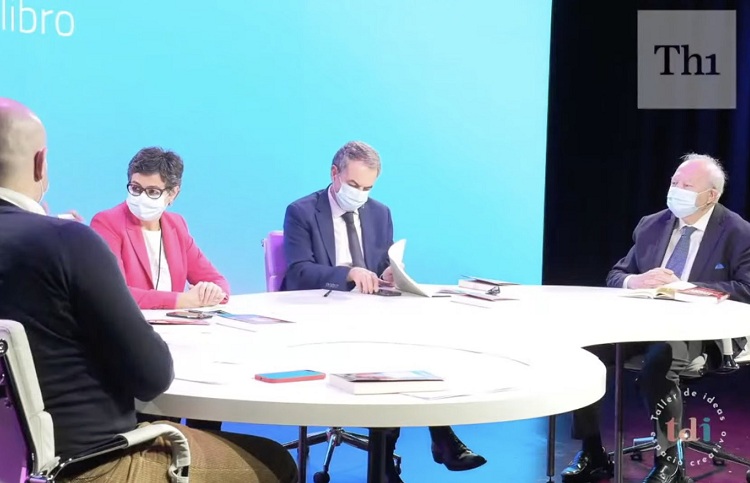Eduardo González
The Minister of Foreign Affairs, Arancha González Laya, has warned that the data of the latest Barometer of the Elcano Royal Institute reveals that “Spaniards are our worst enemies” because of “the national political battle”, as shown in a “flagrant” way in the regional election campaign in Madrid.
“The latest Elcano Barometer shows that the whole world outside Spain sees us much better than we see ourselves, that we see ourselves as lazier, more corrupt, more incompetent and less prepared than how the rest of the world sees us”, said the minister this past Monday, during her participation in the presentation of the book Spain and the doctrine of effective multilateralism: globalization, diplomacy and security in the Zapatero era, written by the Danish professor of Contemporary History Morten Heiberg.
“We are our own worst enemies”, said González Laya, who gave as an example the criticism within Spain of the management of the pandemic. “When compared, with humility, we are not doing so badly either” and, therefore, “we have to take these issues out of the national political battle, because that is one of the reasons why we are our worst enemies, inside and outside Spain”, she warned. “I don’t want to say that they have to agree, but there are issues that cannot be put in the political fight because they hurt not the other party, but the country and all citizens”, she continued. “The image of Spain is much more solid than we think” but “what is lacking in this country is loyalty” and the Madrid election campaign “is a flagrant example of this terrible tendency we have to mow the grass under our feet”, she concluded.
The presentation of the book, organized by Thinking Heads, the first consulting firm specializing in the positioning of leaders, was also attended by the former President of Government José Luis Rodríguez Zapatero and the former Minister of Foreign Affairs and UN High Representative for the Alliance of Civilizations, Miguel Ángel Moratinos. The book analyzes, precisely, the diplomatic efforts of the governments of Zapatero (2004-2011), with Miguel Ángel Moratinos at the head of Foreign Affairs (2004-2010) in the promotion of multilateralism and international cooperation.
During his speech, Zapatero assured that “the best political products in history are the result of dialogue and agreement” and warned -without expressly mentioning his mediation work in Venezuela, but in response to a question in which he did allude to it- that “if someone tries not to dialogue, it is because they have an intellectual weakness”. Likewise, he assured that the objective of his foreign policy was to make Spain “master of its destiny” in the international order and that this was precisely what he achieved when he decided to withdraw Spanish troops from Iraq, a decision which, he recalled, was described as “goodism”. “Spain counts in the world for the way it has done things in recent years,” he declared. “We are a leading country in the policy of agreements” and it is “fundamental that we continue to be a leading country in favor of international cooperation and the policy of agreements”, he added.
For his part, Moratinos recalled that when he took office his mission was to “reconfigure” Spanish foreign policy after the “Atlantic unilateralism” of José María Aznar’s government, to “put Spain back in the great vectors of the 21st century” and to provide Spanish society with “the instruments to give it the capacity to influence the world”.
During the presentation of his book, Heiberg -who acted as moderator during the event- recalled that after “a suffering 20th century” in which the country “was not able to control its destiny in international politics”, Spain today lives a “full democracy” thanks, in large part, to its commitment to “multilateralism”. “Spain has inserted itself very well in international bodies, guaranteeing that it cannot return to the authoritarian past”, he concluded.







